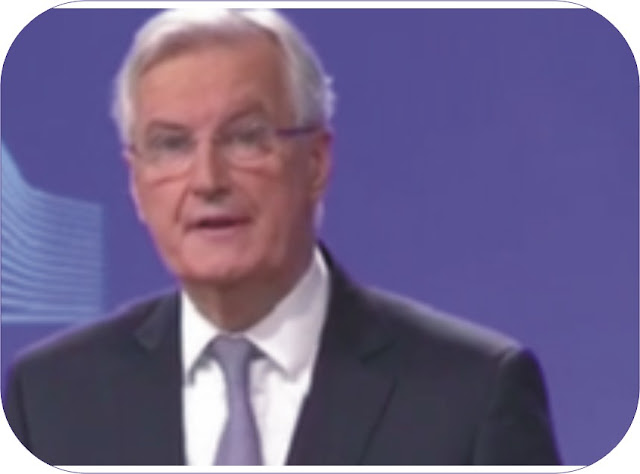Below are some of the promises included in the manifesto of
the Labour Party which were revealed in a leaked document.
The Party is planning to re-nationalise energy companies in
the United Kingdom, railways and the Royal Mail.
Work round the clock to achieve a "nuclear-free
world" and "extremely cautious" about using Britain's nuclear
deterrent.
Only send British armed forces into combat if "all
other options have been exhausted".
The manifesto also says the party’s leader Mr Corbyn will
scrap tuition fees, rule out a "no deal" Brexit and refuse to set a
migration target, but keep Trident despite Mr Corbyn's personal opposition to
its renewal.
The party’s manifestoes were leak on the eve of a meeting to
agree the manifesto to be attended by Labour's national executive, shadow
cabinet, policy forum, trade union leaders and backbench committee of MPs.
The proposals, already being dismissed by critics as a
return to the 1970s, include:
·
A pledge to nationalise energy firms, railways,
bus firms and Royal Mail
·
Income
tax increases for those earning more than £80,000 a year
·
Ensuring 60% of the UK's energy comes from
renewable sources by 2030
·
Companies with government contracts would only
be allowed to pay their highest earner 20 times more than the lowest
·
Fines for businesses that pay their staff high
wages and a business levy on profits
It was also included in the manifesto that, the party would
inject extra £6 billion annually for the NHS and another £1.6 billion annually
for social care.
The total scrapping of university tuition fees to encourage
more students into the university, make town halls to build 100,000 new council
houses for the British people, under a new Department for Housing. And offer
thousands of homes to rough sleepers and cap private rent increase during
inflation.
Create a new Ministry of Labour that will supervise the
biggest boost to workers’ rights in decades, while planned hikes to the pension
age beyond 66 will not go ahead.
It also contains measures already announced including £5bn
to end "Tory schools cuts", 10,000 extra police officers and a £250bn
capital investment programme to upgrade British infrastructure.
Despite the big spending pledges, the manifesto includes a
commitment to get rid of the deficit and balance Britain's day-to-day budget by
the end of the next Parliament.
The extra spending will be almost entirely funded by new
taxes for big corporations and rich individuals, the manifesto suggests.
The draft manifesto states: "University tuition is free
in many northern European countries, and under a Labour government it will be
free in Britain too."
Mr Corbyn has previously suggested the measure would cost
£7bn and could be funded through higher corporation tax. There will also be
£1bn invested in culture and the arts.
The pledges to boost workers' and trade union rights include
the doubling of paternity leave on increased pay; a right to a contract for
those working 12 hours a week or more; and an assumption that workers are
employees unless a firm can prove otherwise.
On defence the manifesto says: "Any prime minister
should be extremely cautious about ordering the use of weapons of mass
destruction which would result in the indiscriminate killing of millions of
innocent civilians."
On immigration, the manifesto says Labour will make "no
false promises" as the Tories have done.
Instead it states "our economy needs migrant workers to
keep going" and vows to abandon rules which stop British citizens from
bringing in spouses from outside Europe unless they earn £18,600-a-year.
That 'minimum income threshold' will be dropped, and replaced
with a new obligation to live in Britain without relying on public funds or
benefits.
Instead it vows to crack down on bosses who try to undercut
wages with migrant workers or recruit exclusively from abroad.
The manifesto will delight Labour left-wingers who have
spent decades calling for the party to be more radical, but critics are bound
to compare it to the Michael Foot manifesto of 1983, notoriously dismissed by
the late Gerald Kaufman as "the longest suicide note in history".
A spokesman for Mr Corbyn told Sky News: "We do not
comment on leaks. We will announce our policies in our manifesto, which is our
plan to transform Britain for the many, not the few."
A Conservative spokesman said: "This is a total
shambles. Jeremy Corbyn's plans to unleash chaos on Britain have been revealed.
"The commitments in this dossier will rack up tens of
billions of extra borrowing for our families and will put Brexit negotiations
at risk.
"Jobs will be lost, families will be hit and our
economic security damaged for a generation if Jeremy Corbyn and the coalition
of chaos are ever let anywhere near the keys to Downing Street."
For the Liberal Democrats, Tom Brake said: "This
manifesto became meaningless the day Jeremy Corbyn ordered his MPs to vote with
the Conservatives and UKIP to give Theresa May a blank cheque on Brexit.
"Labour supporters should have hope that someone will
stand up to Theresa May's divisive Brexit deal, but it won't be Jeremy
Corbyn."
Source: Sky News, May 2017





























